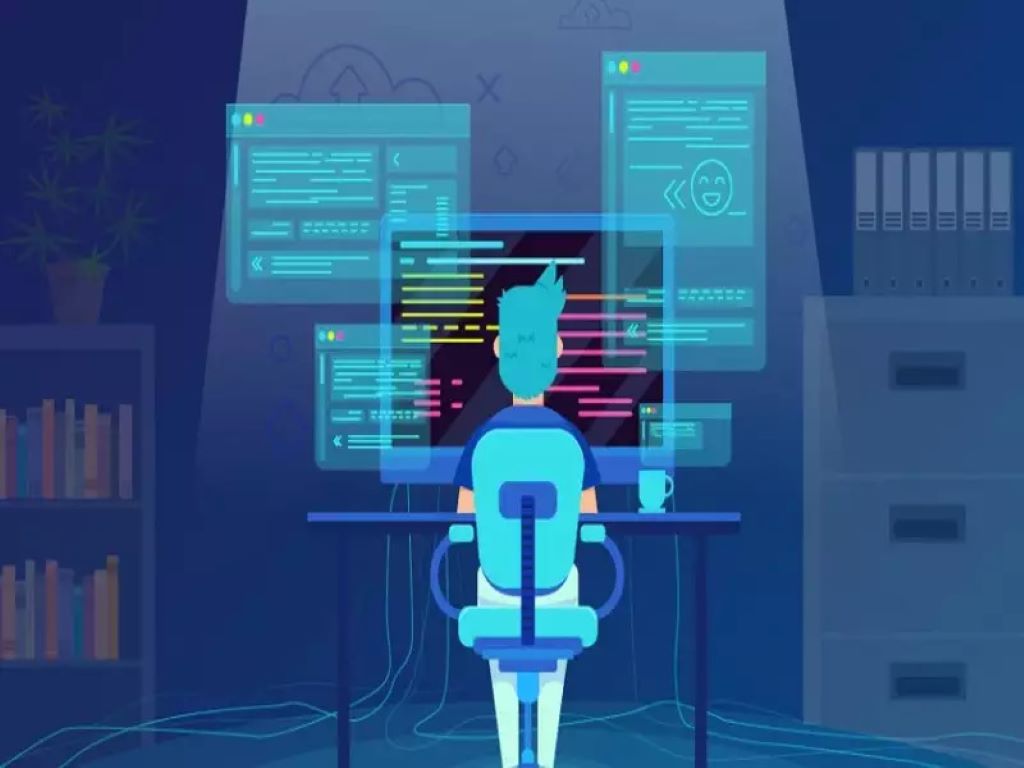In the world of technology and innovation, two career paths that often come into comparison are IT (Information Technology) and Software Engineering. Both fields are integral to the functioning of modern organizations and play significant roles in shaping the digital landscape. However, when it comes to choosing between IT and software engineering as a career option, individuals often find themselves pondering over the question: Which is better? In this article, we will explore the nuances of both fields, delve into their unique aspects, and provide insights to help you make an informed decision.
Understanding IT and Software Engineering
Before we dive into the debate, it’s crucial to understand the fundamental differences between IT and software engineering. IT primarily focuses on the management, implementation, and maintenance of computer systems, networks, and databases within an organization. On the other hand, software engineering emphasizes the design, development, and testing of software applications. Discover right now is software engineering hard.
Exploring IT: Bridging the Gap Between Technology and Business
Information Technology, commonly referred to as IT, is a broad field encompassing various aspects of technology infrastructure and support. IT professionals are responsible for managing hardware, software, network systems, and databases, ensuring the smooth functioning of an organization’s technological ecosystem.
1. Versatility and Breadth of Knowledge
One of the significant advantages of pursuing a career in IT is the versatility it offers. IT professionals are exposed to a wide range of technologies and systems, allowing them to develop a broad knowledge base. From troubleshooting hardware and software issues to implementing security measures and managing databases, IT professionals are well-versed in multiple domains, making them indispensable assets in any organization.
2. Business Alignment and Problem-Solving
IT professionals often work closely with business stakeholders to understand their technological needs and align them with the organization’s objectives. They play a vital role in problem-solving by identifying technology gaps, recommending solutions, and implementing strategies to enhance efficiency and productivity. IT professionals possess a unique blend of technical expertise and business acumen, making them valuable contributors to an organization’s growth.
Unveiling Software Engineering: Crafting Innovative Solutions
Software engineering is a specialized field that focuses on the development and implementation of software applications. Software engineers utilize their programming and problem-solving skills to design and build robust and user-friendly software solutions.
1. Creativity and Innovation
Software engineering thrives on creativity and innovation. Software engineers are constantly challenged to think outside the box and develop cutting-edge solutions to complex problems. They leverage their programming skills, analyze user requirements, and architect software applications that cater to specific needs. This creative aspect of software engineering allows professionals to make a tangible impact by developing software that enhances user experiences and drives technological advancements.
2. Rigorous Development Process
Software engineering follows a systematic and structured development process, ensuring the reliability and quality of software applications. From requirement gathering and analysis to design, coding, testing, and maintenance, software engineers adhere to industry best practices and methodologies. This disciplined approach helps in creating robust software solutions that meet user expectations and deliver value to organizations.
Comparing IT and Software Engineering: Key Considerations
Now that we have explored the unique aspects of IT and software engineering, let’s compare the two fields based on some key considerations:
1. Skill Set and Expertise
IT professionals typically possess a broader skill set, encompassing areas such as hardware, networking, cybersecurity, and system administration. On the other hand, software engineers specialize in programming languages, software development frameworks, and application design. The choice between IT and software engineering depends on your interest and inclination towards a particular skill set.
2. Career Opportunities and Demand
Both IT and software engineering offer promising career opportunities. The demand for IT professionals remains steady as organizations increasingly rely on technology to drive their operations. Similarly, software engineers are in high demand due to the rapid growth of the software industry and the need for innovative software solutions. It is advisable to consider market trends and growth prospects while making a career decision.
3. Salary and Compensation
Salaries in both IT and software engineering fields can vary depending on factors such as experience, location, and industry. Generally, software engineers tend to have higher earning potential due to the specialized nature of their work. However, experienced IT professionals with in-demand skills can also command competitive salaries. It is essential to research industry standards and salary trends to make an informed decision.
Conclusion
In the ongoing debate between IT and software engineering, determining which is superior remains elusive. Each domain presents distinctive prospects and obstacles, catering to individuals with a wide range of interests and proficiencies. IT specialists assume a pivotal responsibility in overseeing and upkeeping technological infrastructure, whereas software engineers foster innovation and partake in software development. The decision between IT and software engineering hinges on your fervor, career objectives, and the particular position you envisage for yourself in the realm of technology. Speaking of technology and privacy, if you’re wondering how do I control privacy on TikTok?, it’s important to delve into the platform’s settings and options. Just as the choice between IT and software engineering is tailored to individual preferences, controlling your privacy on social media platforms like TikTok allows you to navigate your online presence according to your comfort and priorities.
Frequently Asked Questions (FAQs)
Which field offers better job security: IT or software engineering?
Job security can vary based on factors such as market demand and industry trends. Both IT and software engineering fields have a high demand for skilled professionals, which can contribute to job security. However, it’s important to continuously update your skills and stay abreast of technological advancements to ensure long-term career prospects.
Can I transition from IT to software engineering or vice versa?
Yes, it is possible to transition between IT and software engineering. The skills and knowledge gained in one field can be transferable to the other. However, transitioning may require additional learning and upskilling to bridge any gaps in specialized areas.
Which field offers more opportunities for growth and advancement?
Both IT and software engineering fields offer ample opportunities for growth and advancement. IT professionals can explore managerial roles, cybersecurity, data analysis, or specialize in niche areas such as cloud computing. Similarly, software engineers can progress to become technical leads, architects, or pursue entrepreneurship by developing their software solutions.
Do IT professionals need programming skills?
While programming skills may not be a requirement for all IT roles, having a basic understanding of programming concepts can be beneficial. Knowledge of scripting languages and automation can significantly enhance an IT professional’s efficiency and problem-solving capabilities.
Can I pursue a career in both IT and software engineering simultaneously?
It is possible to have a hybrid career that combines elements of both IT and software engineering. Many professionals work on cross-functional projects that involve aspects of both fields. However, balancing the demands of both fields can be challenging, and it’s essential to assess your capacity and interests before pursuing such a path.






